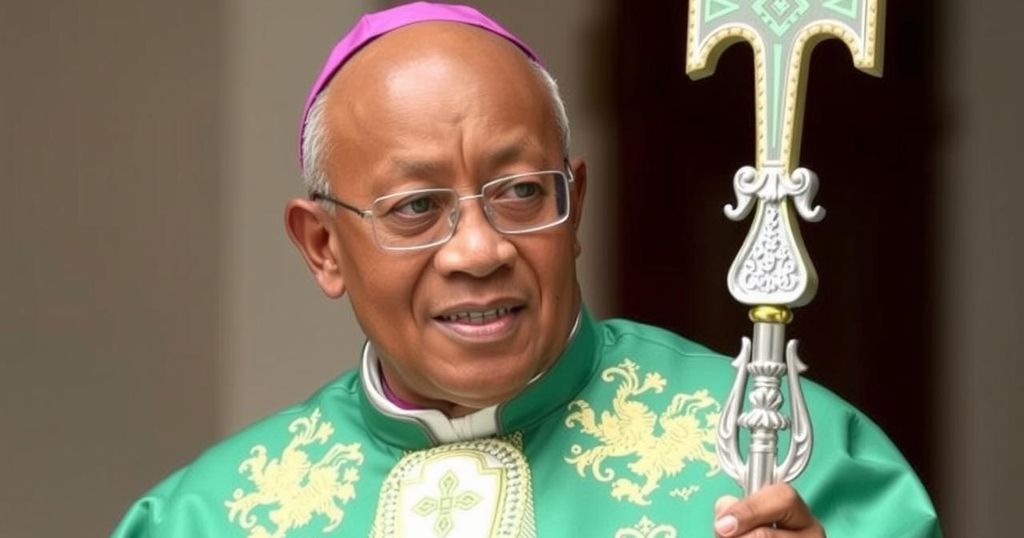Archbishop Samuel Kleda of Douala criticized Cameroon’s electoral system, asserting that democracy is a mere pretense under President Paul Biya, who has ruled since 1982. Allegations of electoral fraud and manipulation are rampant as Kleda and other political leaders demand significant electoral reforms. The current challenges faced by Cameroonians underscore an urgent need for a more democratic electoral process.
In a recent interview, Archbishop Samuel Kleda of Douala criticized Cameroon’s electoral system, asserting that genuine democracy is all but nonexistent in the country. He stated, “Democracy in Cameroon exists in name only; in reality, it doesn’t exist,” emphasizing that the outcome of elections is predetermined. President Paul Biya, who has been in power since 1982, exemplifies this situation as he is the world’s oldest head of state. Despite the facade of democracy, allegations of electoral fraud remain a persistent issue. The Archbishop voiced concerns regarding the alleged bias within Elections Cameroon (ELECAM), the body responsible for overseeing elections. He stated, “Who organizes elections in Cameroon? This needs to be clearly defined” and remarked that the institution lacks true independence as a significant portion of its members are aligned with Biya’s ruling party. Other political figures, like Prince Ekosso and Muma Bih Yvonne, echoed Archbishop Kleda’s calls for electoral reforms, highlighting the cumbersome registration process and the need for a more straightforward voting procedure. They urged a reevaluation of the electoral code to enhance electoral integrity. Cameroon continues to grapple with numerous social issues, including widespread poverty and ongoing civil unrest, which highlights the urgent need for a more democratic political framework.
Cameroon has been under the long-term leadership of President Paul Biya since 1982, marking him as both the oldest national leader and the longest-serving head of state not belonging to royalty. His tenure has been characterized by accusations of electoral manipulation and a lack of transparency. While the country formally conducts elections, many citizens and opposition figures, including members of the clergy, articulate strong concerns regarding the integrity of these processes. Continuous calls for reform have arisen amidst a backdrop of severe social and economic challenges, particularly affecting the nation’s disadvantaged populations and marginalized English-speaking communities.
The statements by Archbishop Kleda highlight a significant concern among Cameroonians regarding the authenticity of their electoral processes and the overarching political climate dominated by President Biya. Calls for urgent electoral reforms reflect a widespread desire among political leaders and civic figures for an electoral system that ensures fairness and genuine democratic representation. As Cameroon approaches its next elections, the pressure for change grows amidst persistent social distress.
Original Source: cruxnow.com






